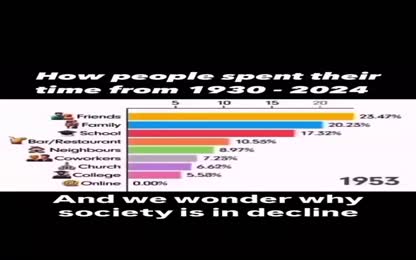Advertisement
The Buck Is Spent, #dedollarization is Gaining Ground, India’s Rupee Ducks the Buck
The Buck Is Spent, #dedollarization is Gaining Ground, India’s Rupee Ducks the Buck
- Category: Follow the Money,Reality Check,Wake up people
- Duration: 05:21
- Date: 2023-04-06 16:40:59
- Tags: india, rupee, dedollarization, hashtag,
0 Comments
Video Transcript:
or favor because our country is going to hell. It's an insult to our country as the world is already laughing at us. Economy that has been crippled by the biggest inflation we have seen in more than 60 years. Our currency is crashing and will soon no longer be the world standard, which will be our greatest defeat, frankly, in 200 years. There will be no defeat like that. That will take us away from being even a great power. But hashtag D-Dollarization is gaining steam. And India, for example, India's new economic policy features a bold move. Well, to move away from using America's reserve currency and international transactions. At this month, the plan comes together to help promote India's foreign trade and bolster domestic production. The Indian rupee is now being used more often in global trade, and Russia has joined a list of 18 countries that are using it to settle accounts with New Delhi. And Russia and more is anti-correspondent, shape-oats. Like it or not, we're living in times of global change. As the much-vanted multipolar world takes shape before our eyes, center stage is the target that the US dollar now has on its head. This week, Brazil and China stuck a landmark deal to drop the American greenback in favor of using their own currencies to settle bilateral trade. An agreement on setting payments in yuan has been signed with Brazil, which greatly facilitates our trade. We're planning to expand cooperation and field of food and mineral extraction, and to search for a possibility of exporting goods with high added value from China to Brazil and from Brazil to China. The expectation is that this will reduce costs, promoting greater bilateral trades and facilitate investment. This effectively means that two major BRICs countries have now dumped the dollar. China is Brazil's largest trading partner, racking up $150 billion in imports and exports last year. Now it's time to recalculate those numbers into Chinese yuan. This comes only days after China used its own currency to import 65,000 tons of liquefied natural gas from the UAE, with a French company total energy settling the deal. There's also a sense that US foreign policy has compounded the dollar's woes, with even Elon Musk waiting into the debate. US policy has been too heavy-handed, making countries want to ditch the dollar. And it's not just the BRICs heavyweights getting in on the act. Recently, Egypt sought to make payments for essential rice deliveries and rupees. In February, Iraq announced it would allow trade with China to be settled in yuan, with Bangladesh making a similar announcement in September. Meanwhile, members of the China-led Shanghai cooperation and organization agreed to increase trade in local currencies. We discuss the need to increase trade and transactions in national currencies. It grows gradually, not as fast as with one, but it moves forward nonetheless. Russia has also been pushing to drive trade through alternatives to the dollar, with round after round of western sanctions driving that reality. Russia now uses the Rubell, Indian Rupi, Chinese yuan, and the UAE Deeram bypassing Uncle Sam. We would continue to use the dollar, but they won't let us. How are we supposed to make transactions? So we use currencies that are agreeable for our trade partners. Yuan is one of those currencies, especially as it's also used by the IMF. So as we watch the multipolar world evolve before our eyes, it's clear that there's a real international desire to do things differently. There's a sense that a better, more just way to do business can deliver positive change by moving away from the US dollar that props up the American rules-based order and has allowed it to print trillions for free while it's tried to make the rules and give the orders. Earlier, we spoke with a public policy and business analyst, Vikram Linze. Now, he says the US dollar is slowly losing its leading role in global trade. There is a larger wave of de-dollarization happening around the world. I mean, it's been years now that the dollar hegemony was there and has been there for some time now. And that seems to be wavering a bit off-late and the wave is getting stronger every month or every year, let's put it that way. There's a general trend towards multipolarism happening. And with that multipolarism, currency, of course, the currency mechanism and global trade mechanisms also have to therefore become multipolar. That's essentially the reason. 70 years back, I mean, there was the Nixon shock and before that, the Britain words and all these were post-world war kind of mechanisms which are structured with the Western perspective. The world has changed a lot now. China and India and a lot of Asian countries contribute a lot. And so do other countries, also around the world. So general democratization of currency, general democratization of trade, a larger multipolar environment seems to be emerging. And the currency multipolarization is just a function of that. That's what it's a natural function which is happening at this point of time, I guess.









 Donate
Donate







